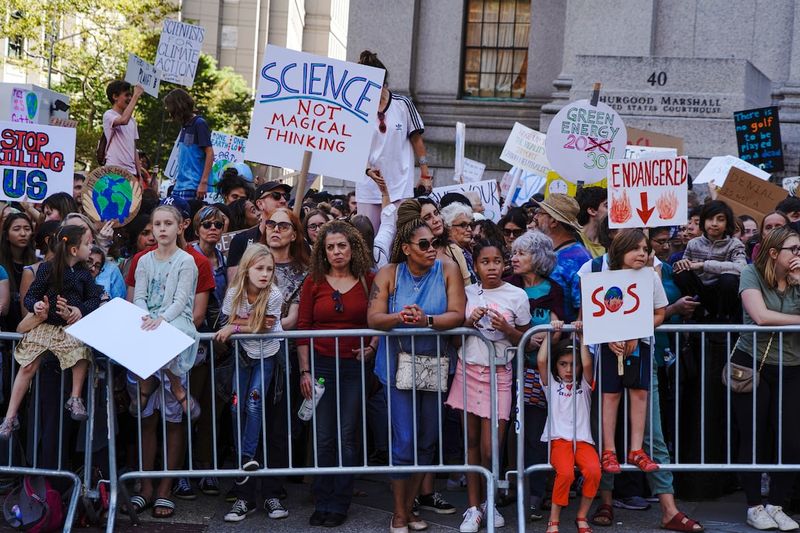Former Vikings DE Everson Griffen charged with 4th-degree DWI
An Overview of the Incident
Former Minnesota Vikings player Everson Griffen, who spent 11 seasons with the team and is known for his success as an edge rusher, was recently charged with fourth-degree DWI after being pulled over in Chanhassen. According to court documents, Griffen was arrested after a pursuit on Powers Boulevard. The arresting deputy reported witnessing Griffen’s “reckless and erratic” driving and noted that he was illegally passing vehicles while the officer attempted to catch up to him.
Griffen’s behavior during the traffic stop was also concerning. He allegedly performed poorly on a field sobriety test and exhibited physical signs of impairment, such as bloodshot, watery, and glassy eyes. A preliminary breath test indicated a breath alcohol concentration (BrAC) of .099, and a subsequent sample at Carver County Jail showed a .09 DMT. Griffen reportedly admitted to the deputy that he had been at a casino and was on his way to a restaurant’s grand opening.
The Consequences of Griffen’s Actions
The incident involving Everson Griffen raises questions about the consequences of athletes’ off-field behavior and the impact it can have on their careers and reputation. While Griffen’s legal case is still pending, his arrest and subsequent charges could have serious ramifications for his personal life and professional prospects.
From a legal standpoint, a fourth-degree DWI charge in Minnesota carries a maximum penalty of 90 days imprisonment, a fine of up to $1,000, or both. Additionally, there may be other legal consequences, such as the suspension of Griffen’s driver’s license and mandatory alcohol education or treatment programs. If convicted, Griffen’s criminal record will be permanently marked with this offense, which could affect his employment opportunities and personal life.
Furthermore, Griffen’s actions also raise concerns about the broader issue of athletes and their responsibility as public figures. Athletes, particularly those in high-profile sports like football, must recognize the influence they have on society and the potential consequences of their actions. Being a professional athlete comes with the privilege of a platform and the ability to inspire and serve as role models for others. When that privilege is misused or compromised, it undermines the positive impact athletes can have on society.
A Discussion on Mental Health
It is worth noting that Everson Griffen has been an advocate for mental health since publicly disclosing his bipolar disorder in 2021. This incident should not overshadow his contributions to raising awareness about mental health issues in the sports community. While it is important to hold athletes accountable for their actions, it is equally important to approach discussions around mental health with compassion and understanding.
Mental health challenges can affect anyone, regardless of their profession or status. It is crucial to support individuals who are dealing with mental health issues and ensure they have access to proper resources and support systems. Griffen’s journey with bipolar disorder serves as a reminder that mental health should not be stigmatized, but rather openly discussed and addressed.
Editorial: Athletes, Responsibility, and Consequences
The Role of Athletes as Role Models
Athletes occupy a unique position in society, often serving as role models for young people and sources of inspiration for fans. They have the power to influence public opinion and shape cultural conversations. With this influence comes an inherent responsibility to uphold high standards of behavior, both on and off the field.
When athletes engage in conduct that contradicts the values they are expected to embody, it not only damages their personal reputation but also erodes the trust and admiration of their fans. Everson Griffen’s recent arrest serves as a reminder that even the most accomplished athletes are not immune to making poor choices. It falls upon the athletes themselves, as well as their teams, leagues, and the sports community at large, to ensure that they act responsibly and maintain their integrity.
The Need for Accountability and Rehabilitation
While it is important to hold athletes accountable for their actions, it is also essential to recognize that individuals can change and grow from their mistakes. The consequences faced by Griffen should serve as an opportunity for him to reflect on his choices and address any underlying issues that may have contributed to his behavior. It is imperative for professional sports organizations to provide resources and support systems for athletes to address their mental health, substance abuse, and other concerns.
Rehabilitation programs, counseling, and educational initiatives can play a critical role in shaping the personal development and growth of athletes. By investing in the well-being and rehabilitation of athletes, teams and leagues demonstrate a commitment to their players’ long-term success and the overall betterment of the sports community.
Advice: Valuing Responsibility and Seeking Help
Lessons for Athletes and the Sports Community
The situation involving Everson Griffen highlights the need for athletes to prioritize responsibility and seek help when facing personal challenges. Athletes should be encouraged to address their mental health concerns openly and honestly, without fear of stigma or repercussions. A supportive environment that fosters discussions on mental health is essential for athletes to maintain their well-being and make wise decisions.
For the sports community at large, it is crucial to invest in programs that promote responsible behavior and provide resources to tackle mental health issues. Teams, leagues, and sports organizations should prioritize the well-being of their athletes and establish a culture that encourages personal growth and accountability.
Personal Responsibility and Accountability
While athletes have a responsibility to act as role models, it is also important for individuals to take personal responsibility for their actions. Making choices that align with one’s values and considering the potential consequences of those choices is crucial for maintaining personal integrity.
For athletes who may be struggling with mental health or substance abuse issues, seeking help is a sign of strength, not weakness. There are resources available, including counseling services, support groups, and treatment programs, that can assist athletes in overcoming challenges and making positive changes in their lives.
In conclusion, the case of Everson Griffen serves as a reminder of the consequences that can arise from athletes’ off-field behavior, the importance of responsibility and accountability, and the crucial need to address mental health concerns. By learning from incidents like this, the sports community can foster an environment that values personal growth, supports the well-being of its athletes, and promotes positive role models for future generations.

<< photo by Catherine Kay Greenup >>
The image is for illustrative purposes only and does not depict the actual situation.
You might want to read !
- No-Sleep Thriller: Greuther Furth and Liverpool Battle to 4-4 Draw in International Clash
- Title: Exploring the Implications of Al Hilal’s Record-Breaking $332 Million Bid for…
- Kylian Mbappé’s Future Hangs in Balance as Saudi Arabia’s Al Hilal Makes Record Offer
- Is It Time for the NFL to Take Stronger Action Against Players with DUI Offenses?
- “Analyzing the Anticipation: The Return of Invincible Season 2”
- “Invincible: The Anticipated Return of Amazon’s Hit Series and the Promise of Exciting New Developments”
- Should we hold professional athletes accountable for their off-field behavior? A case study with Colts' Isaiah Rodgers
- Tori Kelly’s Health Scare: Unveiling the Dangers of Blood Clots
- Tori Kelly’s Health Scare Highlights the Dangers of Blood Clots: A Wake-Up Call for Public Awareness
- Tori Kelly’s Health Scare: Revelations and Recovery




